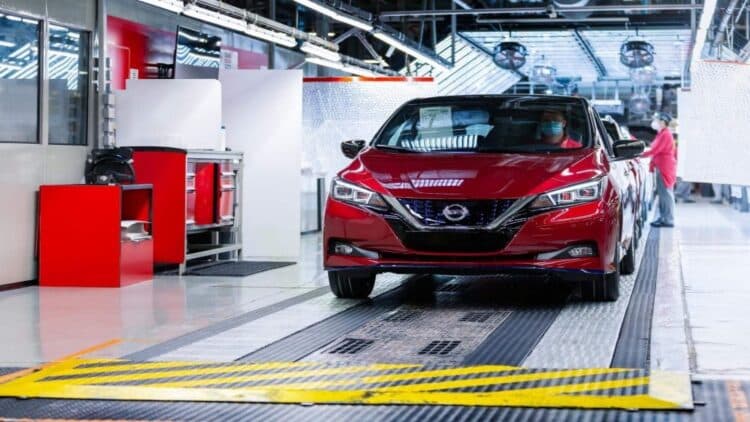Nissan Motor said its vehicle manufacturing at the historic Oppama plant had been decided to end at the end of fiscal year 2027 and was being transferred to Nissan Motor Kyushu as part of global restructuring under the name of the Recovery plan. The 63-year-old plant, which employs about 2400 people and has created more than 17.8 million cars since 1961, will go under because Nissan is consolidating from 17 sites to 10 globally.
Historic facility closure is a huge restructuring milestone
Nissan Motor Co., Ltd. announced that, as part of global production restructuring, as stipulated in its recovery plan, it planned to trigger the transfer and integration of vehicle production at the Oppama Plant, in Oppama district, to Nissan Motor Kyushu Co., Ltd. in Fukuoka Prefecture. The company will stop the production of vehicles at the Oppama plant at the end of the fiscal year 2027. Following this, both current and future models to be produced in the plant will be manufactured at Nissan Motor Kyushu.
This decision will only apply to the Oppama plant in the Oppama district. Other facilities and functions planned in the district, such as the Nissan Research Center, GRANDRive, the crash test facility, and the Oppama Wharf, will not be impacted and will move forward with routine operation of their practices. The Oppama Plant opened in 1961, and has developed with the local community and partners, producing some remarkable models as the world’s first mass-produced electric vehicle, the Nissan LEAF.
Nissan CEO Ivan Espinosa had this to say: “Today, Nissan took a tough and necessary decision”. It wasn’t easy – to myself or to the company – but I think it’s a critical step toward surmounting our current challenges and creating a sustainable culture for the future. The Oppama Plant is a proud part of our history and the legacy of that will remain. “To our employees, to our local community, and our partners, I want to sincerely thank you for the support you have shown in this plant with dedication and heart.”
Global capacity reduction targets increase the efficiency
Under Re, Nissan wants to cut its global production capacity from 3.5 million units (excluding China) down into 2.5 million units, having a plant utilization rate of about 100%. To do this, the company has been looking at the consolidation of production locations from 17 to 10. In Japan, Nissan has decided that building groups of moving consolidation and transfer of vehicle production of the Oppama Plant production base in Nissan Motor Kyushu is the most effective, from a point of view of plant production capacity, cost, and investment.
This transfer will hopefully lead to drastically reduced manufacturing costs in Japan, stronger plant competitiveness, improved product profitability, as well as support Nissan’s long-term growth. The associated costs are currently being evaluated and will be announced together with the first quarter financial announcement. Nissan also announced that production of the NV200, currently consigned to production of Nissan Shatai, will end in fiscal year 2026, with a successor to be introduced in fiscal year 2027.
Transition plans for employees address workforce issues
Employees who currently work in the Oppama plant will remain in their employment until the end of the fiscal year of 2027. To address issues about employment and work arrangements beyond that, the company will create clear policies and communicate them to “affected employees” and initiate conversations with the union as soon as decisions are made.
The closure of Nissan’s Oppama plant is a turning point in the structural transformation of the automaker, as it lies on the boundary between being historical and operational. While the choice involves thousands of employees and represents an ending to an era of a facility that pioneered the way in how electric vehicles were made, it is indicative of Nissan’s commitment to achieving financial stability without limits through intelligent conciliation.


